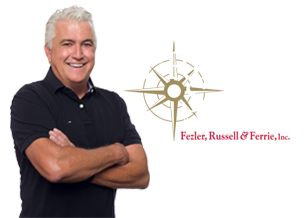The 2024 hurricane season is now here, and expected to be more active than usual. Here are some of the most important things to check on your homeowners policy.
Look at the Dwelling Coverage A & B amounts. Make sure those amounts, and the other listed coverages, are sufficient to totally rebuild your home and other structures. Your main house is usually listed as Coverage A and other structures as Coverage B. If you have a large or expensive fence, a shed on a permanent foundation, guesthouse, or anything similar, you may need to contact your agent to make sure the amount you have is appropriate.
Look at your deductibles. Florida is one of those states that has multiple types of deductibles that can be different amounts. Generally, your “wind and hail” or your “hurricane” deductible are higher than your standard deductible. The standard deductible is often written as your “All Other Perils” deductible. Most of the time your hurricane deductible is listed as a percentage. That doesn’t mean they would only pay a percentage of your claim. It means that the dollar amount is based on a percentage of how much your home is covered for. As an example, a $500,000 rebuild home with a 2% hurricane deductible would a $10,000 hurricane deductible. If any of the deductibles listed are a concern, contact your agent and discuss your options. (Sidenote, if all other perils deductible is less than $1000, you should seriously consider increasing it to at least $1000 if you can because there’s likely a massive savings).
There are quite a few exclusions and limitations on most homeowners’ policies. The ones that tend to be the most problematic for hurricane season are limitations or exclusions for screened enclosures, solar panels, and roofs covered at “cash value” or on a value schedule that is less than the full replacement. Sometimes you can check on your policy to see if those items are listed as covered or excluded, but most likely you would need to check with your agent if you have any screen enclosure or solar equipment limitations or exclusions.
Additionally, not all policies are written the same for what is covered, and HOW it is covered. Those nuances are often not well described on the declarations page, and you would actually have to read into the full policy language in order to figure out what would be covered and how it would be paid for if there was damage. Here are a couple of examples of what I mean:
Wind driven rain. Some policies will not cover damage that results from water that gets into your house unless something else causes an opening which then allows the water in. Meaning, if the wind tears the roof off or a tree smashes through it, the resulting water damage could be covered. However, if we have strong winds that push water into your home through the roof, windows, doors, etc but doesn’t actually create an opening, there may not be coverage for the subsequent water damage.
Emergency mitigation or repairs. Many policies will limit the amount of money that can be spent on emergency repairs or damage mitigation without prior approval. The limitation is generally close to $3000 +/-. There is no action to take regarding this limitation, other than be aware of it so that you don’t start doing a ton of work or major mitigation of damage until you speak with an adjuster following a claim.
Trampoline liability. You can be held responsible for damages done to someone else’s property if you have a trampoline and the wind blows it out of your yard. Many policies exclude or severely limit liability coverage for trampolines. Check your policy to see how coverage might apply and, if you haven’t already, have your trampoline properly staked down/tied down to prevent it from being blown away.
Because of these, and many other potential limitations or exclusions within many Florida homeowners policies, it is a really good idea to review your policy paperwork regularly and speak with your insurance agent if you have any concerns or make any major changes to your house.
Allen McGinniss, 850-329-6996
Home Auto Life serving Florida, Georgia, & Tennessee
McGinniss Himmel Insurance Agency
2367 Centerville Rd, 32308
Office 850-329-6996; Fax 850-329-6982; allen@insurancemh.com









